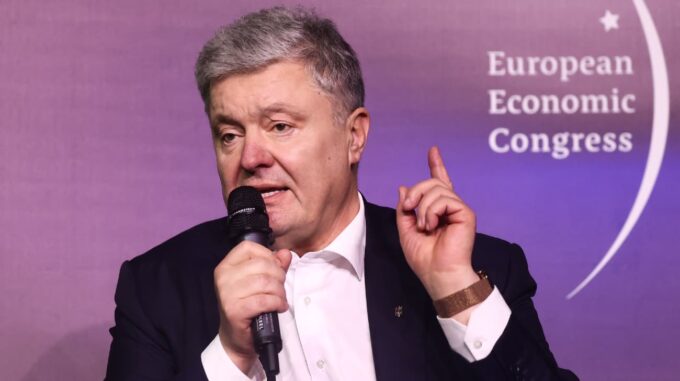New Phase of Political Investigations Against Petro Poroshenko: Authorities Consider Him Involved in Preparing the “Kharkiv Agreements”

The country has once again seen a surge in political battles and criminal investigations, with prominent former officials and leading politicians becoming key figures. Recently, the media reported a new case that could significantly impact Ukraine’s political landscape and generate public excitement. According to investigative authorities, former President and one of the most influential politicians, Petro Poroshenko, has been implicated. Allegedly, he was involved in preparing the so-called "Kharkiv Agreements," which hold significant historical importance for Ukrainian-Russian relations. According to the official version from investigators, during the final weeks of his tenure as Minister of Foreign Affairs, Petro Poroshenko was allegedly engaged in drafting a document allowing the Black Sea Fleet of the Russian Federation to remain on Ukrainian territory until 2042. Official comments stated that these agreements were of strategic importance for both countries but laid the groundwork for Russia’s subsequent annexation of Crimea in 2014 and the large-scale aggression against Ukraine. Poroshenko’s entourage dismiss these accusations as unfounded and illegitimate, emphasizing that he was no longer in official office when the agreements were signed. They highlight that he resigned from his position in March 2010, while the Kharkiv Agreements were signed more than a month later—in April of the same year—when Poroshenko was already out of Ukraine’s diplomatic leadership. Official sources add that by that time, all legal issues related to the signing had been resolved, and national leadership was operating within established procedures. In response to this news, Poroshenko’s allies issued a sharp rebuttal, labeling the new allegations as "another politically motivated provocation." They stress that such statements create an illusion of personal guilt for the politician, despite him having no formal involvement in the decision-making process at the time. They argue this intensifies political pressure and questions the objectivity of the investigation. Furthermore, investigators are working across several criminal proceedings related to this case. During recent searches, law enforcement visited offices of former diplomats and political advisors, including Konstantin Yelisieiev—then Deputy Minister of Foreign Affairs and Poroshenko’s international affairs consultant. It was also revealed that documents and materials related to negotiations for the Kharkiv Agreements are being seized. This case has attracted considerable public interest, as these agreements laid the legal foundation for Russia’s presence in Crimea and subsequently enabled Russian military operations in the region. Official data indicates that the Kharkiv Agreements were signed on April 21, 2010, in Kharkiv by President Viktor Yanukovych and Russian President Dmitry Medvedev. The document allowed the Russian Black Sea Fleet to stay in Ukraine until 2042, with an automatic renewal for another five years if both sides silently agreed. Domestic Ukrainian legislation positively assessed the ratification of these agreements in April 2010. It is important to note that by that time, Petro Poroshenko was no longer involved in diplomatic work, having left the ministerial post in March, with the ratification process carried out by other officials. However, these agreements later became the subject of intense speculation and political debate due to their influence on Ukraine’s history. Proponents of Ukrainian sovereignty and independence point out that the Kharkiv Agreements laid the groundwork for Russian aggression and the occupation of Crimea, with their signing regarded as a betrayal of national interests. Conversely, official authorities and supporters of the previous government emphasize that the document was necessary to stabilize internal political situations and maintain peace, and that its signing conformed to international norms and procedures. This case has sparked a wide range of public debates, and its investigation raises many questions about political motives and the fairness of the process. Law enforcement and special services are focusing on clarifying the details of how the agreements were adopted and the possible political games behind them. The decision-making process involved diplomatic negotiations among high-ranking officials, which remains under suspicion. The investigation has become one of the main political news stories in Ukraine, as society discusses not only legal aspects but also moral and strategic questions regarding responsibility for key decisions made during the country’s most challenging times. Many analysts and political experts currently assert that pursuing such resonant cases may become another tool in internal political struggles, and the results could influence the future careers of former officials. Meanwhile, the public eagerly awaits further developments and the investigators’ revelations about the true motives and potential consequences of this new escalation in Ukraine’s political arena.

